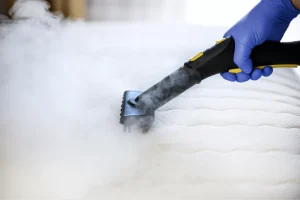
Mold growth in homes or commercial spaces can lead to severe damage and health risks. After undergoing mold remediation, it is important to take proactive measures to ensure that mold does not return. The process of remediation addresses existing mold problems, but preventing future growth requires consistent maintenance and awareness. Consulting with experienced professionals for mold remediation services can further ensure your home or business remains mold-free for the long term.
Control moisture levels:
The primary cause of mold growth is moisture. Keeping your indoor environment dry is essential to preventing a resurgence of mold. To achieve this, consider using dehumidifiers in areas that tend to get damp, such as basements, bathrooms, or kitchens. Installing moisture barriers in crawl spaces and ensuring your home is adequately ventilated will also help reduce humidity levels. Fix any leaks in plumbing, roofs, or windows immediately to prevent water from seeping into your property.
Regular inspections:
Even after mold remediation services, it’s important to regularly inspect your property for signs of moisture or mold. Check behind furniture, under sinks, and in attic spaces for any lingering issues. If you detect musty smells or see any visual signs of mold, act quickly to prevent further growth. Regular inspections can help you catch problems early before they become severe.
Ventilation is key:
Proper ventilation plays a significant role in preventing mold growth. Ensure your home or business is well-ventilated, especially in high-moisture areas. Use exhaust fans in bathrooms and kitchens to remove excess moisture from the air. Open windows and doors when possible to allow fresh air to circulate, reducing the chances of mold reappearing.
Maintain your HVAC system:
The HVAC system can be a hidden source of mold growth if not properly maintained. Ensure that your HVAC system is regularly cleaned and that the filters are replaced frequently. Moisture can accumulate in air ducts, so ensure they are sealed correctly and cleaned to prevent mold from spreading. If you live in a particularly humid area, consider investing in a system designed to reduce indoor humidity levels.
Address water damage immediately:
Any water damage, such as a leaking roof, broken pipe, or flooding, should be addressed without delay. Water that sits for even a short time can provide an ideal breeding ground for mold. After any water damage event, dry the affected areas thoroughly within 24–48 hours and consider contacting professionals to ensure mold doesn’t develop.







